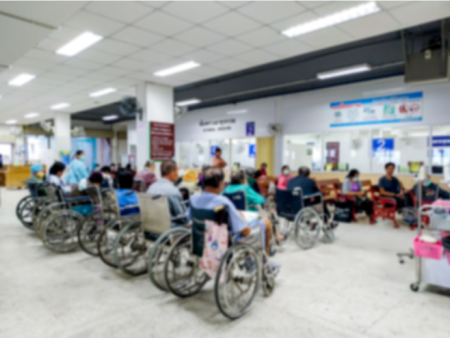
Posted on: May 25, 2021
Preventing Hospital Readmissions and Saving Lives with AI & ML
1 in every 5 patients, who are discharged from the hospital, are readmitted in less than 30 days. Isn’t that striking information?
For both patient-party and healthcare institutions, hospital readmission is bad news. Under the Hospital Readmissions Reduction Program, the Medicare & Medicaid Services charge heavy penalties to hospitals that have more than expected readmission rates for certain conditions.
Hospital readmissions are costly and more often they are avoidable, but avoiding them is still a major challenge for healthcare organizations.
COVID-19 and Hospital Readmission:
According to the latest study, nearly 1 in 10 patients discharged after receiving inpatient care for coronavirus disease 2019 (COVID-19) earlier were readmitted within two months.
To fill the knowledge gap about post-hospitalization COVID-19 outcomes, Centers for Disease Control and Prevention (CDC) investigators surveyed hospital records and administrative data for 126,137 patients with COVID-19 who were admitted between March to July 2020. Among survivors, 9% were readmitted to the same hospital within two months of discharge, and 1.6% were readmitted more than once.
Need for Advanced Techniques in Readmission Management:
If we search through the literature, primarily published in the last five years, we cannot find a simple answer of how we can reduce readmission and observe that different publications are studying diverse factors affecting the development of a particular illness. Furthermore, the factors that can affect the illness are not only clinical but also environmental and social.
The most referred variables are demographics, socioeconomic conditions, vitals, comorbidity, discharge/ admission parameters, and many more.
We deduce that a massive amount of work has to be done but, as the topic is so complex, no single human brain can process the information needed. These circumstances require and reinforce computers, especially the machine learning approach and data analysis, to help us manage the situation.
State-of-the-art Solutions:
- Machine Learning:
Using this platform, healthcare organizations can develop a good patient monitoring plan to anticipate the possible readmission time and identify any conditions that may cause the readmission. It allows hospitals to get the reasons behind high readmission rates and direct them by coordinating with care providers and physicians to improve hospital stays.
- Big Data Analytics:
By using clinical and social data, present and historical, hospitals can identify high-risk patients, treat them before they become critical, reduce unnecessary admissions, and improve patient care. Combining clinical, operational and financial data can help identify the treatments and programs that are not delivering desirable returns or are too expensive to operate. An ideal patient monitoring plan and an optimal readmission prediction will help mitigate readmissions before they cause emergency readmission.
The advanced solutions can not only prevent hospital readmissions but also improve Hospital resource allocation, Reduced costs, Risk and care management, Improved patient care, Reduce hospital length-of-stay.
So how is your institution handling the problem of readmission, especially now, during COVID-19? Are there ways you can improve the system and increase profitability?
Please email us in case you are interested to hear more about us.




